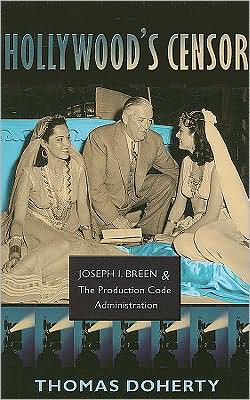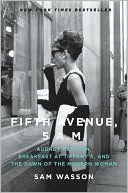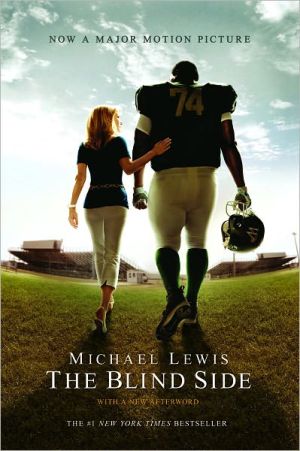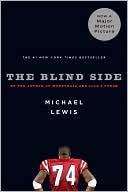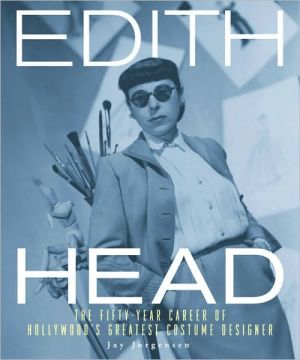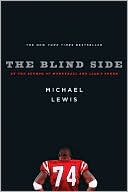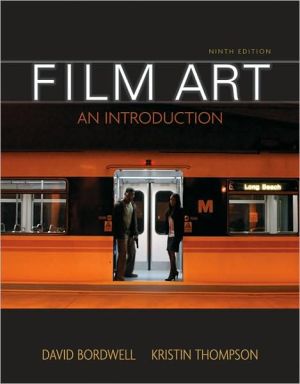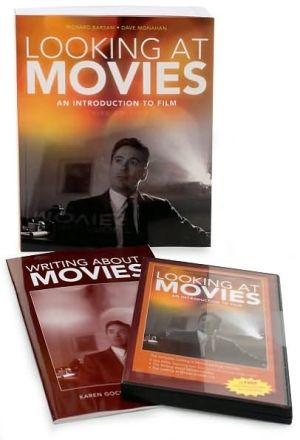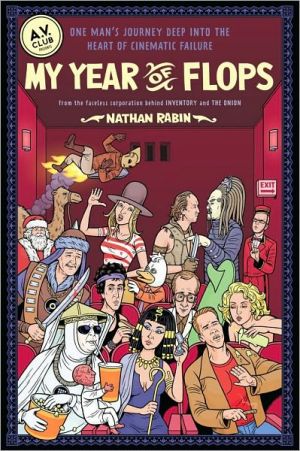Hollywood's Censor: Joseph I. Breen and the Production Code Administration
From 1934 to 1954 Joseph I. Breen, a media-savvy Victorian Irishman, reigned over the Production Code Administration, the Hollywood office tasked with censoring the American screen. Though little known outside the ranks of the studio system, this former journalist and public relations agent was one of the most powerful men in the motion picture industry. As enforcer of the puritanical Production Code, Breen dictated "final cut" over more movies than anyone in the history of American cinema....
Search in google:
Cultural historian Thomas Doherty recounts the untold tale of the man who dictated "final cut" over more movies than anyone in the history of American cinema. Empowered by industry insiders and millions of like-minded Catholics, Joseph I. Breen oversaw the editing of A-list feature films, low-budget B movies, short subjects, previews of coming attractions, and even cartoons. Populated by a colorful cast of characters, including Catholic priests, Jewish moguls, visionary auteurs, hardnosed journalists, and bluenose agitators, Doherty's insightful, behind-the-scenes portrait brings a tumultuous era& mdash;and an individual both feared and admired-to vivid life. The New York Times - Ada Calhoun …thanks to this surprisingly entertaining and rigorous biography of Breen…it's now clear why Hollywood's self-censorship was inevitable and even cunning…Miraculously, [Doherty] makes the censor who took "sweater girls" as a personal affront, tried to keep politics off the screen even after Pearl Harbor and insisted that Greta Garbo be "kept away entirely from the bed"…seem less like a buzz-kill and more like a man who loved Hollywood, God and country, and spent 20 years trying to reconcile them.
Opening CreditsPrologue: Hollywood, 19541 The Victorian Irishman2 Bluenoses Against the Screen3 Hollywood Shot to Pieces4 The Breen Office5 Decoding Classical Hollywood Cinema6 Confessional7 Intermission at RKO8 At War with the Breen Office9 In His Sacerdotalism10 "Our Semitic Brethren"11 Social Problems, Existential Dilemmas and Outsized Anatomies12 Invasion of the Art Films13 Amending the Ten Commandments14 Not the Breen Office15 Final Cut: Joseph I. Breen and the Auteur TheoryAppendix: The Production CodeNotesFilm IndexIndex\ Columbia University Press
\ New York Times Book Review\ - Ada Calhoun\ [An] entertaining and rigorous biography of Breen.\ \ \ \ \ \ Pittsburgh Post-Gazette\ - Carol O'Sullivan\ A fascinating read for anyone interested in American film history.\ \ \ \ Los Angeles Times\ - Kenneth Turan\ [An] authoritative, entertaining, unexpectedly unnerving biography.\ \ \ \ \ \ The Phoenix\ - Gerald Peary\ [A] brilliant and absorbing new book.\ \ \ \ \ \ Washington Post\ - Dennis Drabelle\ Hollywood's Censor is a stinging portrait of a cultural strongman who made it his business to baby his fellow citizens.\ \ \ \ \ \ Palm Beach Post\ - Scott Eyman\ Written with controlled exuberance, and much wit.\ \ \ \ \ \ Commercial Dispatch\ - Rob Hardy\ A pleasure to read.\ \ \ \ \ \ New York Times Book Review[An] entertaining and rigorous biography of Breen.\ — Ada Calhoun\ \ \ \ \ \ Pittsburgh Post-GazetteA fascinating read for anyone interested in American film history.\ — Carol O'Sullivan\ \ \ \ \ \ Los Angeles Times[An] authoritative, entertaining, unexpectedly unnerving biography.\ — Kenneth Turan\ \ \ \ \ \ The Phoenix[A] brilliant and absorbing new book.\ — Gerald Peary\ \ \ \ \ \ Washington PostHollywood's Censor is a stinging portrait of a cultural strongman who made it his business to baby his fellow citizens.\ — Dennis Drabelle\ \ \ \ \ \ Palm Beach PostWritten with controlled exuberance, and much wit.\ — Scott Eyman\ \ \ \ \ \ Commercial DispatchA pleasure to read.\ — Rob Hardy\ \ \ \ \ \ CHOICEAn exemplary biography... Highly recommended.\ \ \ \ \ \ ChoiceAn exemplary biography... Highly recommended.\ \ \ \ \ Dennis DrabelleThe never-in-doubt Breen stands at the center of Doherty's knowledgeable, entertaining history of the Code during its heyday from 1934 to the mid-1950s…Doherty, who teaches American studies at Brandeis University, makes too little of the ingenuity with which writers and directors got around the Code (see, for example, the exquisitely timed "Aunt Fanny" sequence in Howard Hawks's "His Girl Friday"), but until reading this book I'd never realized how many controversial movies the Code smothered in the crib, among them a version of Sinclair Lewis's novel It Can't Happen Here. Hollywood's Censor is a stinging portrait of a cultural strongman who made it his business to baby his fellow citizens.\ —The Washington Post\ \ \ \ \ Ada Calhoun…thanks to this surprisingly entertaining and rigorous biography of Breen…it's now clear why Hollywood's self-censorship was inevitable and even cunning…Miraculously, [Doherty] makes the censor who took "sweater girls" as a personal affront, tried to keep politics off the screen even after Pearl Harbor and insisted that Greta Garbo be "kept away entirely from the bed"…seem less like a buzz-kill and more like a man who loved Hollywood, God and country, and spent 20 years trying to reconcile them.\ —The New York Times\ \ \ \ \ Publishers WeeklyIn this comprehensive coverage of cinematic censorship, Doherty, a professor of American studies at Brandeis University, probes the power of Joseph I. Breen (1888-1965), head of Hollywood's puritanical Production Code Administration from 1934 to 1954, and along the way, he captures the clash of "Catholic priests, Jewish moguls, visionary auteurs, studio hacks, hardnosed journalists and bluenosed agitators" in pre-TV Tinseltown. Born in Philadelphia, the Irish-Catholic Breen was a journalist turned publicist. His successful marketing of a film documentary showing "Catholic multitudes" at the 1926 Eucharistic Congress catapulted his career. With powerful backers in his corner, the Catholics and the New Dealers, Breen tightened the screws: "I am hopeful of doing something, to lessen, at least, the flow of filth, but I have no illusions about the problem." He ruled with an iron fist, altering scripts and deleting footage until Otto Preminger cracked the Code in 1953 with The Moon Is Blue. Amid an avalanche of anecdotes and fascinating movie lore are 60 illustrations (ads, posters, stills) and a copy of the 1956 Production Code. The 42 pages of bibliographic notes are evidence of the author's exhaustive research. Doherty writes with such wit and verve, bringing the past to life, that this scholarly study is also a very entertaining read. (Nov.)\ Copyright 2007 Reed Business Information\ \ \ \ \ Library JournalJoseph I. Breen, as head of the Production Code Administration from 1934 to 1954, influenced more movies than anyone else in history. Doherty (American studies, Brandeis Univ.; Pre-Code Hollywood) has woven his extensive research into sparkling prose that portrays the players-the moguls, money men, bluenoses, journalists, clergy, and filmmakers-and issues swirling around Breen as he enforced the Production Code and ensured that pictures were chaste, moral, and wholesome. Doherty's rendering of the cultural climate in America contextualizes the code and traces its reception from the Great Depression to the post-World War II era, addressing the influence of foreign films, art houses, television, politics, world events, and changing mores of the motion picture industry and the code's enforcement. Doherty's characterization of Breen as an Irish Catholic with Victorian sensibilities and a divine motivation is rich and multilayered. Compelling, colorful, insightful, and nearly encyclopedic in detail, this book seems destined to become the definitive scholarly biography of Breen. Highly recommended.\ —Donna L. Davey\ \ \
